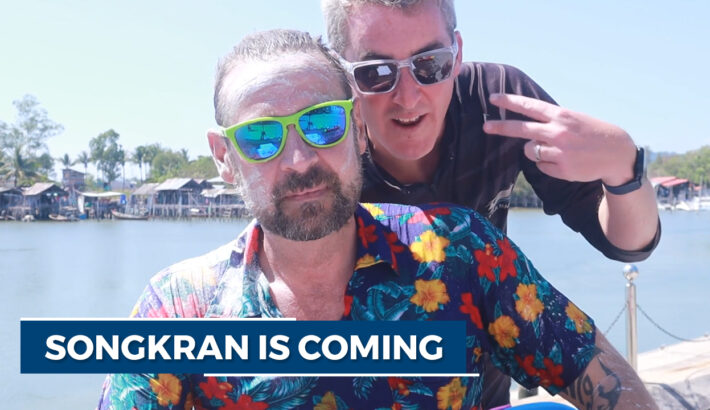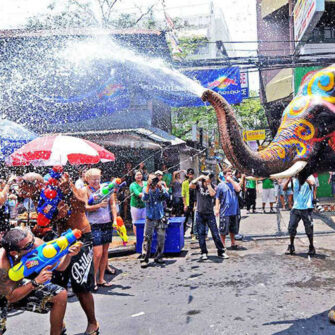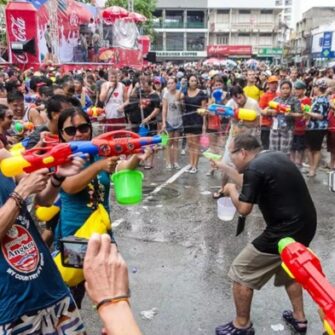Embrace the Splash: Traditions of Songkran The Thailand New Year

Songkran festival Thailand 2024
Songkran festival Thailand 2024
As the scorching heat of April sweeps across Thailand, the streets come alive with laughter, music, and the unmistakable sound of splashing water. It’s Songkran, the traditional Thai New Year festival, a time of renewal, purification, and exuberant celebration.
A Dip into History: Origins of Songkran
The history of Songkran traces back centuries, blending Buddhist and Hindu traditions. Derived from the Sanskrit word “Sankranti,” meaning astrological passage or transition, Songkran marks the beginning of the Thai lunar New Year. Originally a time for spiritual cleansing and renewal, Songkran was observed through rituals such as the pouring of scented water over Buddha images, bathing of elders’ hands as a sign of respect, and the building of sand pagodas.
Splash into Celebration: How Songkran is Celebrated
Today, Songkran is celebrated with unparalleled enthusiasm across Thailand. The festival typically lasts for three days, though in some regions, festivities can extend for even longer. Central to the celebration is the joyful tradition of water splashing, symbolizing the washing away of past misfortunes and the welcoming of a fresh start.
When Did the Water Fight Begin?
The evolution of Songkran into a massive water fight is a fascinating tale. While the origins of water splashing during Songkran are rooted in the pouring of scented water over Buddha images, the playful aspect of dousing others gradually gained popularity over time. It wasn’t until recent decades that Songkran transformed into the iconic water festival known today, with revelers armed with water guns, buckets, and hoses, turning streets into impromptu water battlegrounds.
Fun Facts and Traditions:
Colorful Parades: Songkran is marked by vibrant parades featuring elaborately decorated floats, traditional Thai dancers, and cultural performances.
Sandalwood Flower Offerings: During Songkran, people often make offerings of sandalwood flowers at temples as a symbol of worship and merit-making.
Community Spirit: Songkran is a time for family reunions, temple visits, and acts of kindness. It’s not uncommon for locals to prepare food to share with neighbors and less fortunate members of the community.
Regional Variations: While water splashing is ubiquitous, different regions of Thailand may have unique customs and rituals associated with Songkran. For example, in the northern city of Chiang Mai, Songkran is celebrated with the famous “Poy Sang Long” procession, while in the southern province of Phuket, there’s a strong emphasis on cultural performances and religious ceremonies. Well that and massive water fights on Bangla Road in Patong.
Songkran is more than just a water festival; it’s a time-honored tradition that embodies the spirit of renewal, unity, and joy. As we immerse ourselves in the festivities of Songkran, let’s embrace the opportunity to cleanse our souls, connect with loved ones, and welcome the New Year with open arms. Sawasdee Pee Mai! Happy Songkran!
Whether you’re joining the water fights on the streets of Phuket or experiencing the serene temple ceremonies, Songkran promises an unforgettable experience that captures the essence of Thai culture and hospitality.
So, grab your water gun, don your floral shirt, and get ready to make a splash at Songkran!






